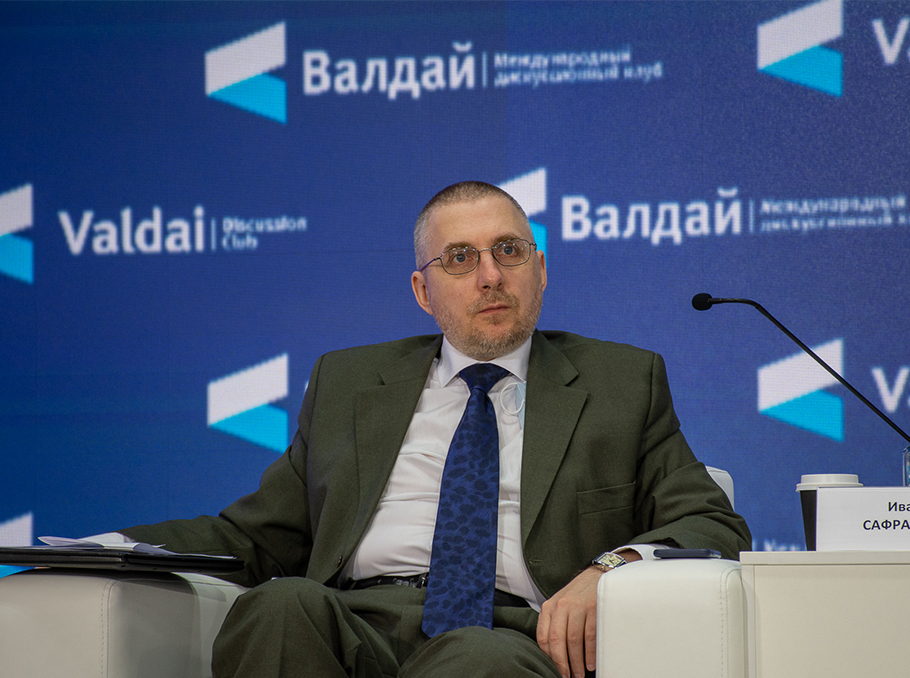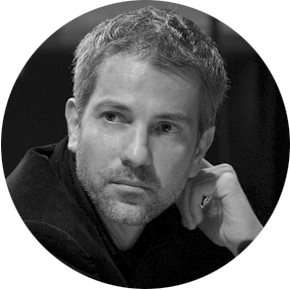Mediamax’s interview with Ivan Safranchuk, Director of the Center for Euro-Asian Studies of MGIMO, member of the Council on Foreign and Defense Policy
- Recently, we hear a lot of judgments about Russia and the West “fighting for Armenia”. Opinions about Armenia’s “geopolitical reversal” are also being voiced. Do you think it is possible?
- There is objective reality, and there are various speculative judgments. This applies to many issues in the post-Soviet space. We are faced with the fact that for 30 years Western politicians and experts, the entire Western community as a whole, have been promoting the thesis that we should not dwell on objective circumstances and that everything can be changed. What matters is energy, will, desires, and the “right values” and “right institutions”. And allegedly all this changes the reality. This is, like, Marxism in reverse: it is not the basis that determines the superstructure, but the “right superstructure” can change not only the basis, but the whole reality.
These theses have been presented for long. And since in many countries, including Armenia, there is dissatisfaction with objective circumstances, the economic situation, and the parameters of corruption, people start looking for ways to change this. And, unfortunately, we have to admit that in some places, against the background of these objective difficulties, the Westerners managed to brainwash some part of the elite and the population.
Ukraine is the most catastrophic case, at one point it was Georgia, but they sobered up there a little. Apparently, it has reached a critical point in Armenia as well. Some part of the elite is infected with this idea, it creates a buzz that it is possible to turn around, to turn over, to change everything.
I would like to emphasize that Armenia is not an exception. This is a rather general situation for the post-Soviet space and even, perhaps, wider - for a whole category of states, where there is, so to speak, this gap between dreams and reality. And Westerners use it in a certain way.
- Before the 2020 war, Armenia was generally able to maintain a balance in relations between Russia and the West. Today, when tensions between Russia and the West have reached their highest point, will Armenia be able to maintain a balance in these conditions, or, roughly speaking, will it have to make a choice?
- Many who are infected with the desire to gamble on something and accomplish something incredible are betting big on the opportunity to play on the contradictions of the great powers. But we have seen in various examples in the post-Soviet space that trying to play on great contradictions does not end well. Bakiyev tried to play on big contradictions, and it ended badly. Saakashvili tried, and that also ended badly. And Yanukovych, in general, also tried to play, and again, it ended badly. These experiments sobered up the elites: from the desire to play they switched to the search for some geopolitical neutrality.
I think a lot depends on what balance you pursue - aggressive or more moderate. If the elite of even a small country does not want to be a geopolitical suicide bomber, does not want to play too dangerous games, no one will force it.
I think what is happening in Armenia in recent years is a very dangerous geopolitical game. It is a path along the edge. Not even on the edge of personal destiny, as it was in case of Bakiyev, Saakashvili or Yanukovych, but on the edge of statehood. I have always believed that Armenia is unique in the sense that the statehood is young but the baggage of historical problems is very heavy. Therefore, these objective realities and historical circumstances prescribed Armenia a very strict “geopolitical diet”. But unfortunately, Pashinyan has seriously violated the rather strict ration of this diet. The attempt to explore these new possibilities - US, France - has not justified itself. At the analytical level, many spoke of the impossibility of this. At the level of political intuition, the previous generation of Armenian politicians also believed that the diet should not be violated. But here came a man who took a risk putting a lot at stake.
- Armenia and Azerbaijan continue to negotiate on a peace treaty within the framework of two formats: Russian mediation - arising from the logic of the trilateral agreement, and US and EU mediation. How long can these two processes coexist?
- The question is not only how to formalize the agreement with Azerbaijan and under what international guarantees. The question is how the Armenian people will feel this statehood and how they will live with it. After all, what is being discussed now was not even on the table of negotiations five years ago. The generations that grew up in independent Armenia understood their statehood in a certain way, while now they must understand it in some other way and Pashinyan says that this is the best thing he can offer to the Armenian people.
The issue of international formats is very important, but much more important is the issue of harmony inside Armenia. The Armenian people must realize that they are determining their fate, probably for a long historical perspective. My point is that the threats to the agreements may come not from the outside but from within Armenia.
- Pashinyan’s associates say the Russian plan, which did not write off the issue of Karabakh’s status, was not adopted due to lack of Russia’s proper support to Armenia, which, in its turn, raises concerns about the viability of the plan.
- This looks like an attempt to cover up their own failures, to blame them on Russia, to cover themselves up with Russia. This is probably a rational step in domestic political conditions, but rather cynical and unfair to Russia.
 Ivan Safranchuk
Ivan Safranchuk Photo: Valdai Club
The reasons for the current developments should be sought not in what happened after the trilateral agreements, but in what led to the war and the trilateral agreements to stop it. The root cause is there. Five years ago we discussed the Russian plan, which proposed handing over 5 regions and leaving the issue of the status of Karabakh to the future generations. These were the parameters of compromise then. Today Armenia is in a completely different situation and not because Russia did not do something. On the contrary, at that time the Russian settlement plan was treated without due respect and attention. As to Pashiniyan, he gave it up completely and decided...
- To go his own way, as he said.
- And the result was a completely different reality. So we should not look at the situation through the prism of the last three years following the war. We should look at the horizon of six or seven years. The situation in which Armenia has found itself is the choice of the Armenian leadership. The result is a long and very complicated crisis. I think Russia would have preferred a more compromised solution, not at the expense of the interests of one side only. But over these six or seven years this option has been lost, it no longer exists.
Ara Tadevosyan spoke with Ivan Safranchuk
This interview has been prepared as part of a joint project with the Tufenkian Foundation.
![]()





















